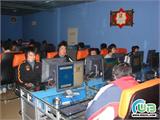DIGG + Xiaonei + Yeeyan + Qiushi Encyclopedia + Focus Media = Rocket Report
"Living is for changing the world, isn't it? There's no other reason," said Steve Jobs. I really like this quote and use it as my signature. Using the internet to change the world has become "possible," which is also the ultimate goal for those of us in the internet industry.
Yesterday, a team of students working on the "University Student Challenge Cup" came to see me. Their entry was a website called "Zonggen Family Network." They showed me their business plan and explained their project at length. My feeling was that while the creativity was there, the market wasn’t. The reason is simple: being too creative or rushing into creativity can lead to losing customers and the market. They failed to grasp the "key" and instead overly focused on irrelevant "details."
On the other hand, many people in my circle talk about 2.0, 3.0 all day long, always coming up with strange ideas. But they don’t understand this principle: "Creativity, like design, must serve the goal. On the contrary, you should never create just for the sake of creativity or design just for the sake of design." We have so many resources, so many opportunities (at least in the internet industry), and we are never short of these, nor will we ever be. What we truly lack are people who can integrate these resources, people and teams who can seize opportunities at critical moments and turn ideas into reality. To put it bluntly, we lack "people."
Later, when the group of students was about to leave, one of their technical members introduced me to a project he was working on in his school club called "Rocket News." I took a look at their website and immediately recognized DIGG. Upon closer inspection, I also noticed several familiar websites: Yeean, QiuShi BaiKe, Xiaonei Sharing, Caogen.net... I was surprised and asked him what exactly this thing was, because I couldn’t understand it—it seemed like a mishmash of everything. He explained that their club wanted to create a website that would interest university students, but they lacked good ideas. When they had an idea, it was too niche and didn’t appeal to the mainstream. After creating an information site, they found it difficult to attract viewers. So, out of desperation, they "borrowed" the models of various successful websites and strung them together with DIGG. When I heard this, I suddenly felt inspired.
Reflecting on my years in the internet industry—though I haven’t achieved much—I’ve encountered countless ideas, concepts, and thoughts. However, I’ve noticed that most people in the internet industry, especially startups, hold this belief: "A good idea will surely attract investment; with investment, it will surely take off; once it takes off, money will surely follow." Without evaluating the correctness of this logic, I’ve found that most of these people are still stuck in the first stage, daydreaming about their ideas and enjoying the process. But I want to ask: what exactly are you providing to your users? I’m not interested in the flashy "how."
So, I want to say that people in the internet industry must make every effort to take responsibility for results rather than getting overly obsessed with form. hao123 lacks technology and doesn’t focus on form, yet it’s more useful than countless junk sites and creative sites. Chinay has money, technology, and connections, yet it was completely overshadowed by Xiaonei, which relied solely on copying (there was a significant coincidence here, I’ll elaborate later if there’s time). People say that success in the internet industry depends on creativity, but so many examples prove that pragmatism is indispensable in the internet world.
Returning to Rocket News, after talking in detail with the technical student, I was even more surprised to learn that their project wasn’t just a website. They were aiming to create what they called "new media," and the entire project was named "Rocket Media." Most interestingly, they mimicked Focus Media’s model and implemented FRAMEDIA in campus dormitories. I didn’t fully understand what kind of model it was, but he said the difference lies in the fact that Jiang Chunnan claims "minutes don’t need content," whereas they decided to "contentize" FRAMEDIA. This made things intriguing. The whole matter caught my attention: their online website integrates others' creativity, while their offline efforts add creativity to existing models. When asked how they intended to position themselves, he simply said that they wanted to provide something interesting, useful, and meaningful to university students, with the vision of becoming China’s leading campus new media. I think this is right—they should approach it this way. Creativity is the seasoning, positioning is the main course. Although their project may still require a lot of refinement and isn’t quite mature, they’ve already brought it to life. He told me that the newspaper has already published dozens of issues on campus, and the website is up and running at http://www.huojianbao.com. They aren’t insiders in our industry, but they bring a refreshing perspective: stop talking and start acting! This reminded me of General Patton’s words: "Practicing an idea today is worth a hundred times more than designing a perfect idea tomorrow."
I hope they succeed, and I will continue to follow them and their website. By the way, they provided an email address, and anyone interested can chat with them. Perhaps they can "change the world," or at least "change oneself." Their email is: [email protected]




